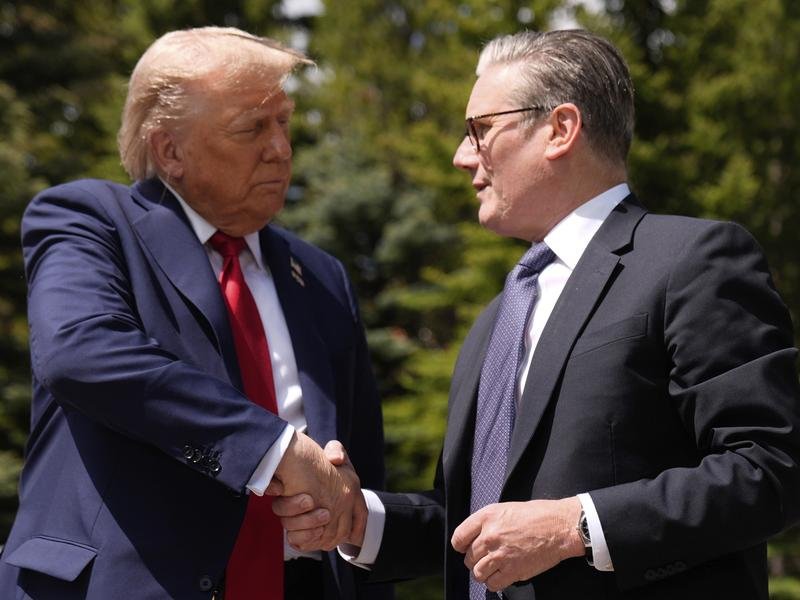AARON PATRICK: Prime Minister Anthony Albanese’s long trip to nowhere
AARON PATRICK: After being snubbed by Donald Trump, the Prime Minister will head back to Canberra with his tail between his legs and little to show from his hyped trip to the G7 summit.
Anthony Albanese no longer talks to people like a regular person. He “engages” with them. In Canada, after a build up worthy of the 1986 Mikhail Gorbachev-Ronald Reagan Reykjavík summit, the engagement was off.
Which was awkward for the prime minister. Some 30 minutes earlier, Tuesday morning, Australian time, he explained to the journalists travelling with him — who were really only interested in the drama of Mr Albanese’s first face time with Mr Trump; call it a first date, if you must — the conversations he had to prepare for the 20-minute meeting.
“I of course have engaged with Ambassador [Kevin] Rudd, as one for example who has, I think, an extraordinary capacity in terms of his skills and knowledge of the United States system,” he said.
Sign up to The Nightly's newsletters.
Get the first look at the digital newspaper, curated daily stories and breaking headlines delivered to your inbox.
By continuing you agree to our Terms and Privacy Policy.“I’ve engaged with others as well across the political spectrum and that is something that I do, as well as engaging with, yes, I’ve engaged with people like Greg Norman.”
Conversation engagement
Mr Rudd, possibly the Australian disliked most by the Trump White House, might have used his exquisite knowledge of US and international affairs to warn Mr Albanese that a war raging in the Middle East might bump a meeting with the Australian prime minister off the president’s Group of 7 “engagement” dance card.
Instead, Mr Albanese tried to come across as resolute and independent. He or his staff briefed reporters the prime minister would push back on a US request to increase defence spending by 75 per cent, by emphasising the Australian bases used by American submarines, warships and marines.
Instead of haggling over military budgets, Mr Albanese intended to steer the conversation to two hostile acts of the Trump administration: placing steep tariffs on steel and beef, and tacitly threating to end the AUKUS nuclear-submarine pact through a review led by a Pentagon sceptic.

Protecting AUKUS now seems to fall to British Prime Minister Keir Starmer, who received the kind of Trump love that Mr Albanese could only fantasise about. “We’ve become friends in a short period of time,” the president said. “He’s slightly more liberal than I am.”
Asked about the submarine pact, Sir Keir said: “It’s a really important deal.”
Mr Trump replied, not entirely convincing: “Yes, we’re proceeding with that.”
Not present, Mr Albanese was relegated to repeating banal talking points while his government’s most important defence policy is in danger of being killed by friendly fire. “The sum of one plus one plus one sometimes equals more than three,” he said.
Back to Canberra
Although it was never explicitly stated, there was an expectation that if the Alberta encounter went well, Mr Albanese might have been invited to fly onto Washington to “engage” with the president in the Oval Office. As long as he was not turned on, which is always possible, it would have been a triumphant moment for Mr Albanese: a demonstration of his international relations prowess to add to his domestic political dominance.
Now the Prime Minister will have to skulk back to Canberra with little more than vague promises of cooperating on military equipment with Europe and Canada.
His invitation to Mr Trump to visit Australia sits out there, unanswered, waiting for the attention of a man, for better or worse, busy remaking the world, while Mr Albanese pursues his project to take Australia back to the ‘70s.

